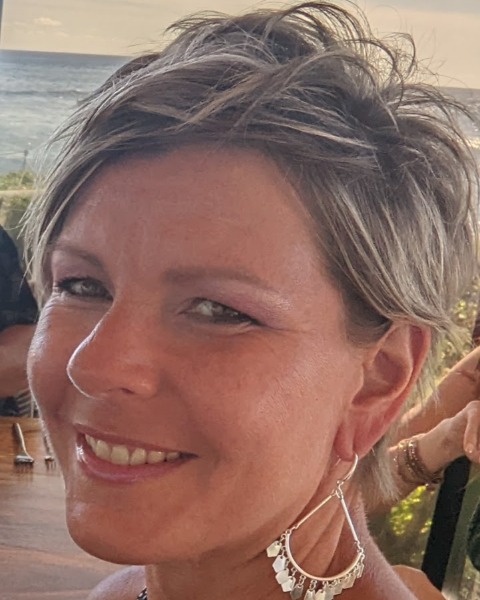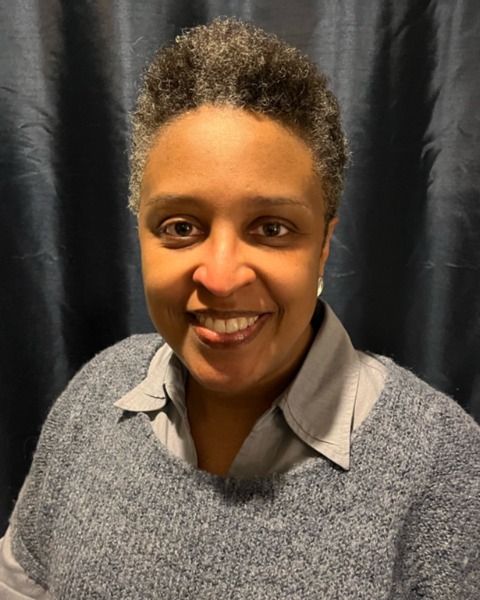SBB/BB Exam Review 2024
-
JS
Jayanna Slayten, MS MLS(ASCP) SBBCM (she/her/hers)
Coordinator of Quality and Analytics
Indiana University Health
Indianapolis, Indiana, United StatesDisclosure(s): No financial relationships to disclose
-
KT
Kaitlyn Taylor, SBB(ASCP)
Medical Technologist II
LifeShare Blood Center
Shreveport, Louisiana, United StatesDisclosure(s): No financial relationships to disclose
-
.jpg)
Michelle Lodermeier, MBA, MLS(ASCP)SBB (she/her/hers)
Sr. Program Manager, BBT
American Red Cross
Woodbury , Minnesota, United StatesDisclosure(s): No financial relationships to disclose
-

Natasha Leon, MLS(ASCP)SBBCM
Clinical Education Specialist
Versiti
Milwaukee, Wisconsin, United StatesDisclosure(s): No financial relationships to disclose
-
WH
Wyenona Hicks, MS, MT(ASCP)SBB (she/her/hers)
Educator/Author
Self
Ocala, Florida, United StatesDisclosure(s): No financial relationships to disclose
-

Diana Riddle, MSTM, MLS(ASCP)cmSBBcm
Assistant Professor
University of Texas Medical Branch
League City, Texas, United StatesDisclosure(s): No financial relationships to disclose
-
SB
Sarah Burnett-Greenup, MS, MLS(ASCP)CMSBBCM
Assistant Professor of Instruction
The University of Texas Medical Branch, Galveston
League City, Texas, United StatesDisclosure(s): No financial relationships to disclose
-
PM
Paul Mansfield, MLS(ASCP)SBB
Director, IRL
American Red Cross
Philadelphia, Pennsylvania, United StatesDisclosure(s): No financial relationships to disclose
-

Kathy Haddaway, MLS(ASCP)CMSBBCM
Technical Specialist II
Johns Hopkins Hospital
Baltimore, Maryland, United StatesDisclosure(s): No financial relationships to disclose
-

Traci Paige, MT(ASCP)SBBcm (she/her/hers)
Supervisory Clinical Laboratory Scientist
The National Institutes of Health
Bethesda, Maryland, United StatesDisclosure(s): No financial relationships to disclose
Program Chair(s)
Speaker(s)
The program attendee will attain a concise and targeted review of blood banking and transfusion medicine. All the information needed to pass the SBB or BB certification exams are briefly reviewed in this program. This program is comprised of 4 sessions which provide the attendee with the structure, information, and encouragement to tackle these exams. This program will provide a plan for those preparing for the BB or SBB certification exam. Each session will highlight specific content areas of the exams highlighting where to find information required for successful completion of these exams. Whether a refresher, a review or new learning, the program attendee will benefit from the comprehensive summary of blood banking and transfusion medicine provided by this course.
Objective Review for Each Section:
8:30-10:00 AM SBB/BB Exam Review 1: Immunohematology Building Blocks
Jayanna Slayten
Kaitlyn Taylor Introduce SBB BB Exam
Diana Riddle, Immunology/Complement
Sarah Burnett-Greenup, Lab Math
- Introduce the requirements for an individual to take the SBB and BB exam.
- Describe immune response and how the cells of the immune system work synergistically.
- Identify the role of complement in transfusion medicine.
- Analyze the critical lab math calculations necessary to be competent with for the preparation for the SBB or BB exam
10:00-10:15 Morning Break
10:15- 11:45 SBB/BB Exam Review 2: Immunohematology Methods and Blood Groups
Michelle Lodermeier, Methods
Paul Mansfield – Blood Groups
Natasha leon
- Apply specific serologic techniques for blood bank problem solving.
- Interpret the results of the immunohematology methods defined.
- Outline blood groups by system, antigen, frequency, function, and unique properties.
- Identify the blood groups which are considered clinically significant and clinically insignificant
1:00-1:30 SBB Open House: SBB Program Representatives will be available to answer your questions and materials will be available from the
programs
1:30-3:00 SBB/BB Exam Review 3: Transfusion Medicine Physiology and Pathophysiology
Wyenona Hicks
Tracie Paige
Kathy Haddaway, Coag and pathophysiology
- Classify transfusion complications.
- Determine the probable cause of a transfusion complication given the serologic testing results.
- Explore and define prenatal, neonatal and HDFN.
- Explain the details of the coagulation cascade and explore its function in transfusion medicine.
- Evaluate signs, symptoms and testing results to aid in interpretation of coagulation disorders, anemia, thrombocytopenia
as well as other disease states which often require transfusion support.
3:00- 3:30 Afternoon Break
